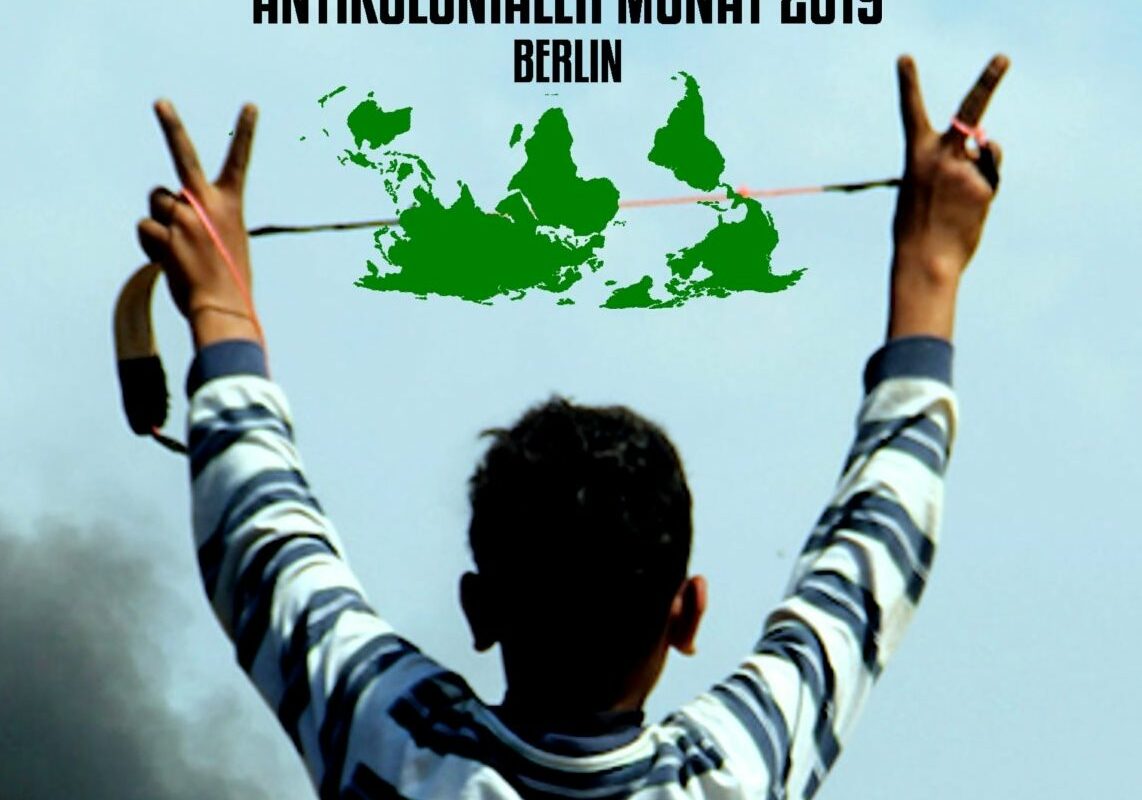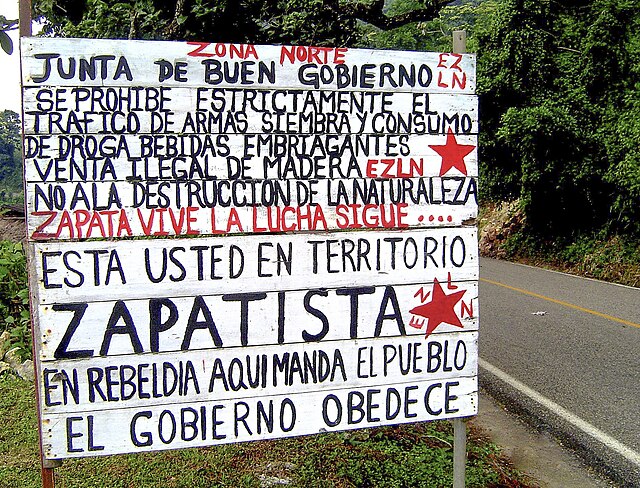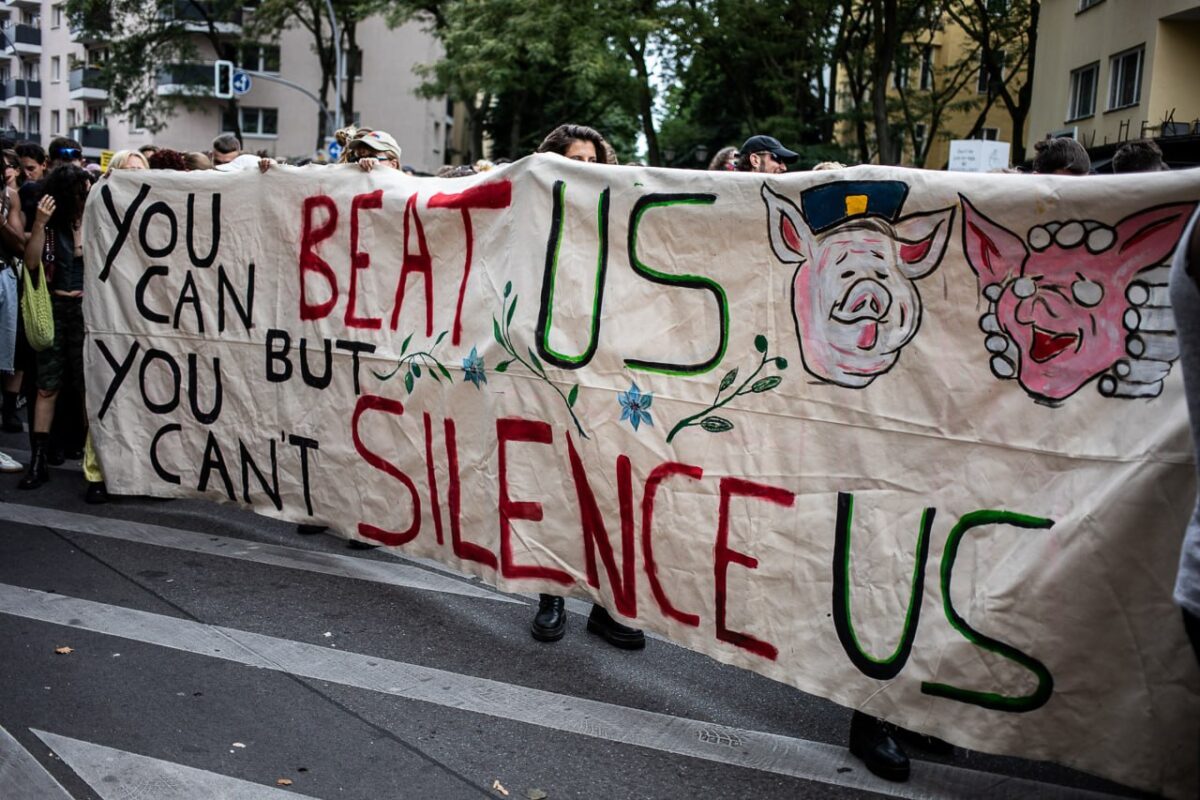Our goal is to connect and amplify the colonised and marginalised, to share strategies for organising and visions for the future. We want to offer a platform and space for activists in anticolonial struggles around the world to meet online. We also aim to link struggles between regions and metropoles, and to form common goals.
Last year, the launching of the Anticolonial Month in Berlin garnered astounding reach both in online space and physical attendance. The forums and workshops focusing on themes within the framework of anticolonial discourse were very well attended, with attendees and speakers alike highly engaged in discussions and debates. It culminated in one of the biggest migrant and people of color demonstrations in Berlin, which also coincided with the demonstration of Kurdish people against the Turkish invasion of Rojava.
This year we are continuing the work that has started last year, which deemed to carry out activities that strengthen, articulate and make visible the work of immigrants in Berlin, the current capital of European imperialism, in an anti-colonial perspective.
The anti-colonial month this year starts on the 10/10 with the anti-Columbus kundgebung with infostands that is being organized by Latin Americans, from 14h to 18h and will go until the 15/11 (date of the Berlin conference when Africa was divided among european countries).
Due to the limitations imposed by the Covid-19 pandemic, most of the activities this year will be carried out online. These activities and events will be in the form of lectures, forums or online workshops. In this regard, we are inviting all interested organisations to propose activities and send us so we can add to the calendar, popularize it through our platform and networks. In the end, we will do an assembly to discuss the process.
We propose some thematic axes for the different weeks of the anticolonial month, these are transversal themes that can unite the agenda of different collectives:
-
Indigenous peoples and the struggle for ancestral territories
-
Incarceration and state violence
-
Racial capitalism and migration
-
Repression exports: arms exports and military training




